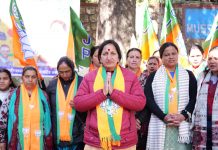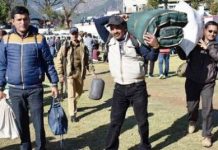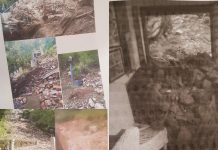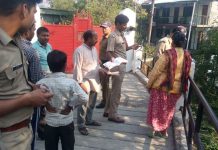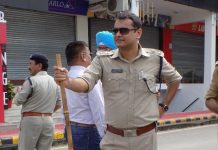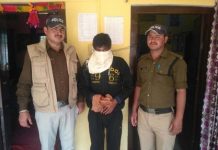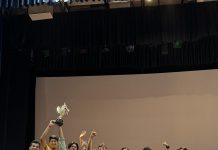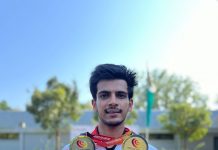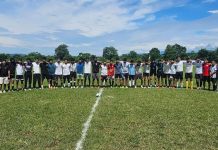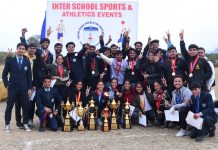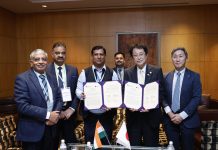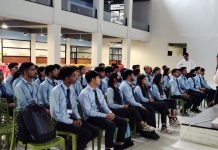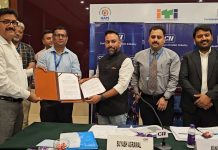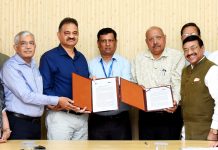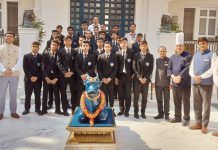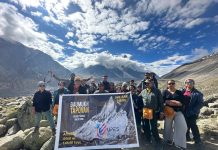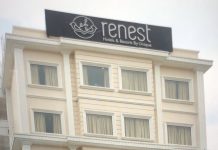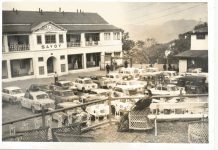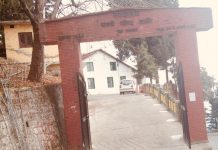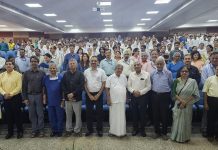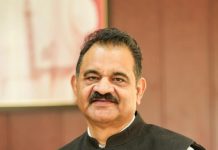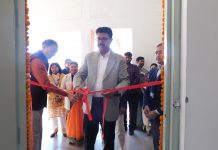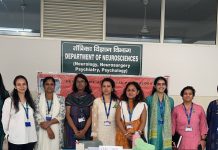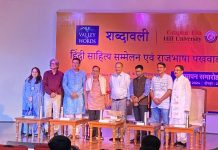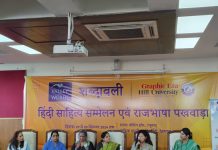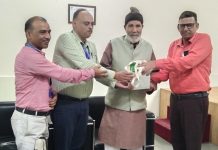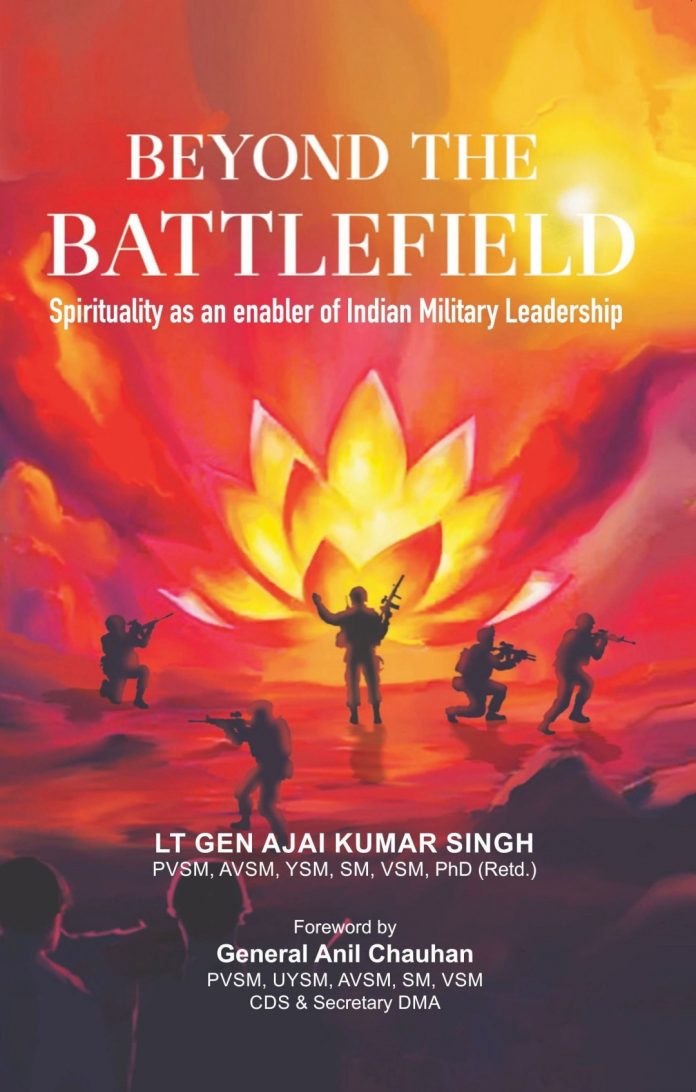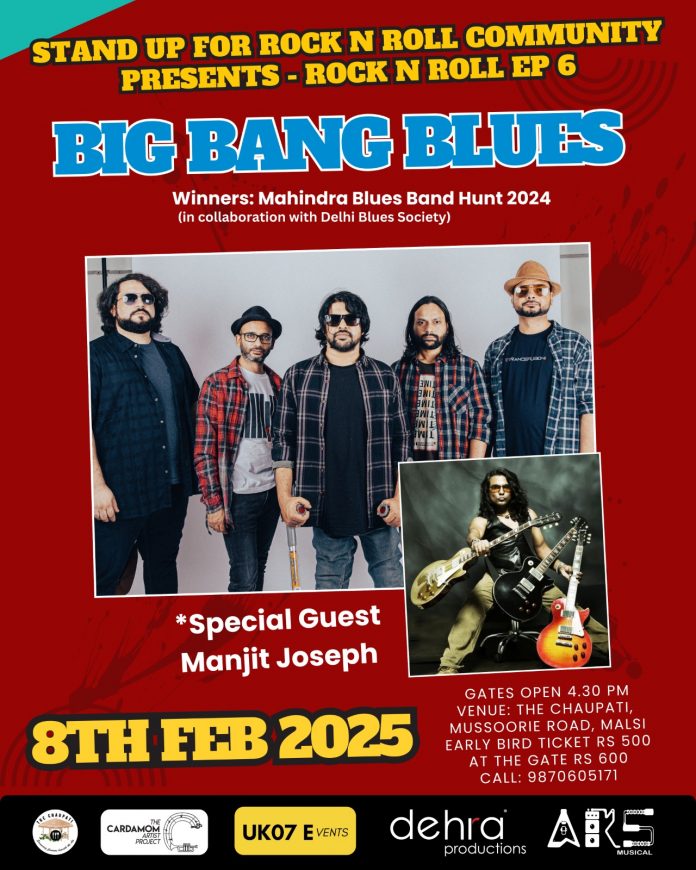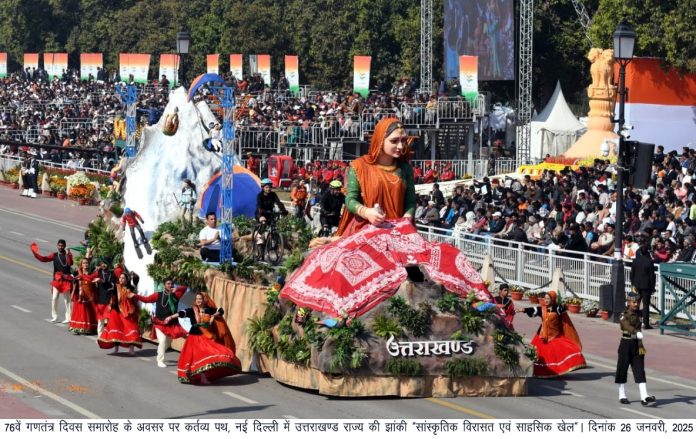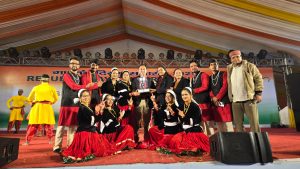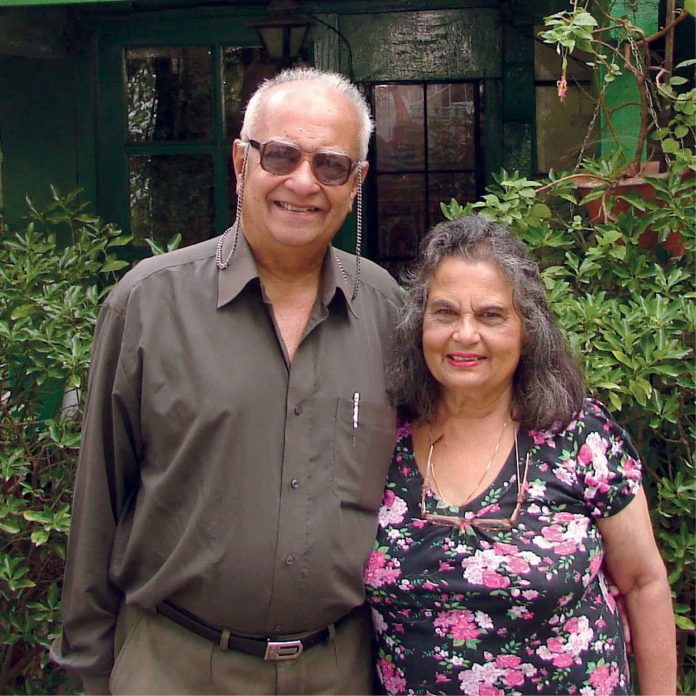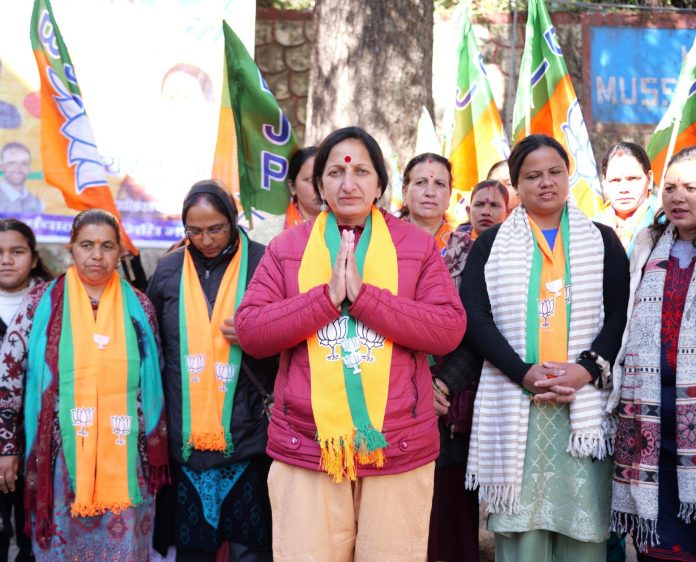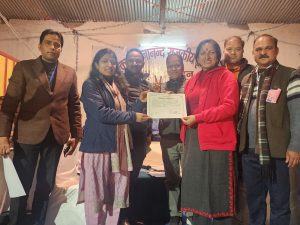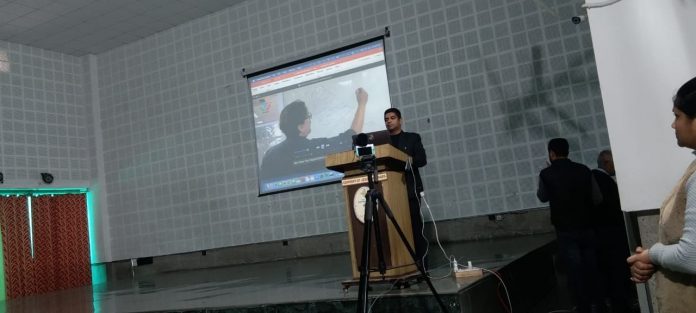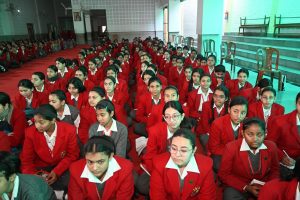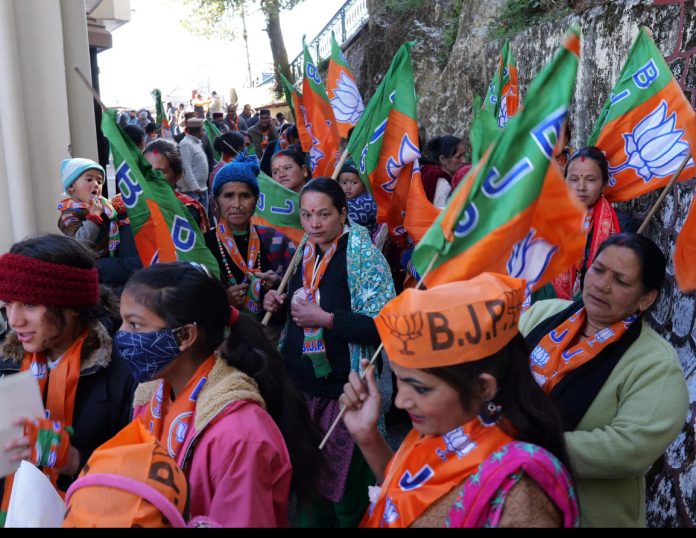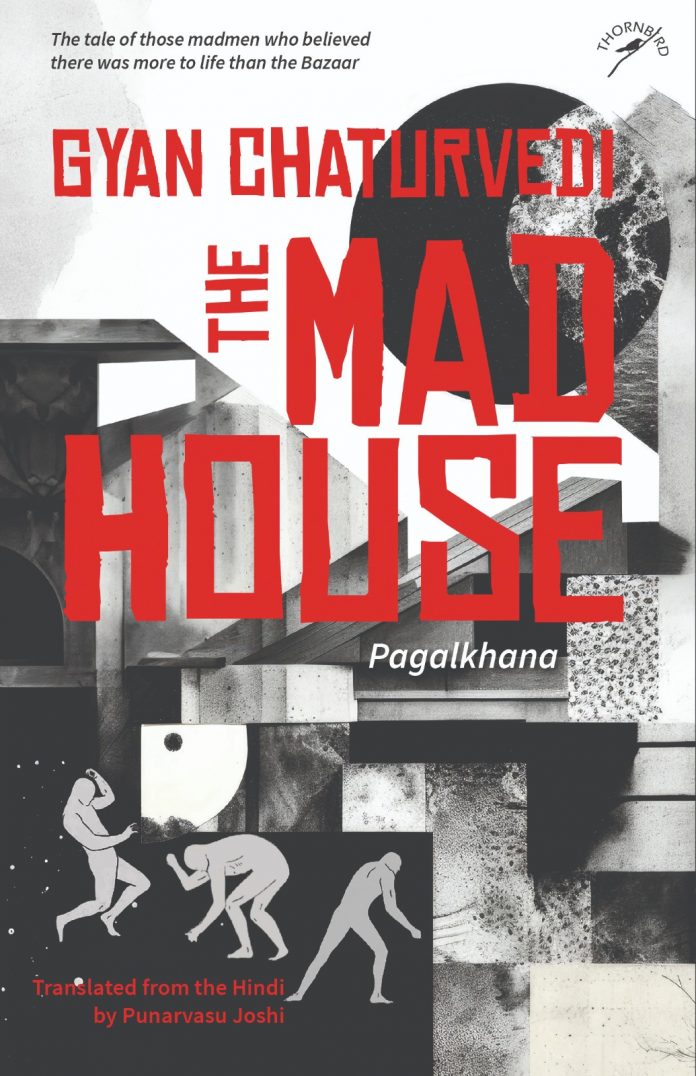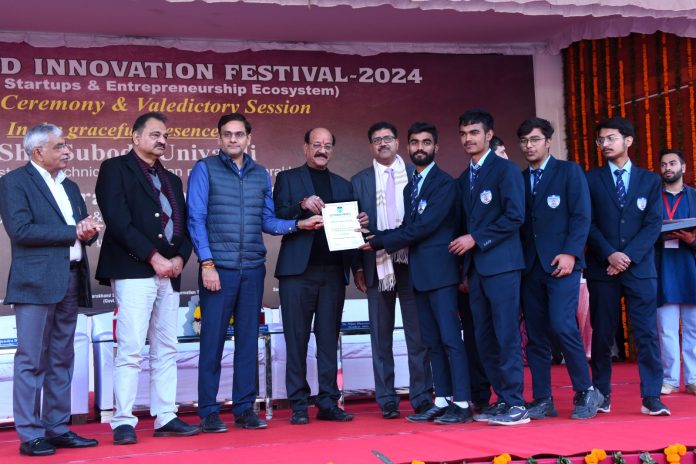The military is certainly about symbols – flags, bugles, conches, regalia, trumpets, medals, badges and epaulettes, and of course protocol, discipline and hierarchy. In fact, in the very first chapter of the Bhagwad Gita (BG) we hear Sanjaya informing the king of the Kurus about the conches blown by the warriors on both sides: Yudhishtar with his Anant Vijaya, Arjun with his Devadatta and Bhima with Vaikodra as against Paundram of Bheesham Pitamah and Hirangarbhahya of Karna. But the principal character of the Mahabharata is not any one of these great warriors, but the charioteer Krishna, who gave the most powerful and stirring spiritual discourse to a despondent warrior Arjuna who willingly gave up the most powerful weapon of his times, the Gandiva to the ground, and woefully declared :
evam-uktva hrishikesham gudakeshah parantapa
na yotsya iti govindam uktva tushnim babhuva ha
Having thus spoken, Gudakesh, that chastiser of enemies, addressed Hrishikesh: “Govind, I shall not fight,” and became silent. BG II.9
The possession of a weapon is not the main determinant of war
Thus, the possession of a weapon is not the main determinant of war. What matters is the spirit of the man who holds the weapon. This is precisely the point which the highly decorated General Ajai Kumar Singh brings to the fore in his superb reflection ‘Beyond The Battlefield (BTB): Spirituality as an Enabler of Military Leadership’. This brings to the fore his very mature deliberation on the subject with four key USPs: his field experience of four decades, the academic rigour of a doctoral programme, his skills as a narrator and his ability to relate the text to the context.
The Introduction, which starts with the famous aphorism
‘hato va prapsyasi swargam jitva va bhokshyase mahim
tasmad uttishtha kaunteya yuddhaya krita-nishchayah
If you die in battle, you will attain heaven. If you win, you will attain the earth. So, get up and fight. Treat joy and sorrow, victory and defeat, gain and loss alike, and prepare yourself for battle. BG II.37.
The next verse is equally, if not more powerful, but it is certainly more direct:
sukha-dukhe same kritva labhalabhau jayajayau
tato yuddhaya yujyasva naivam papam avapsyasi
Fight for the sake of duty, treating alike happiness and distress, loss and gain, victory and defeat. Fulfilling your responsibility in this way, you will never incur sin. BG II.38
Research Hypothesis
This then is the background to the hypothesis General Ajai Kumar Singh seeks to test: will spirituality enable the Indian military leadership to become more effective and efficient in today’s challenging environment? His conclusions are based on the responses received to a wide array of questions – ranging from the differences between business and military leadership, transformational versus transactional leaders, motivational factors, leadership traits, relevance of concepts like Karma and Dharma, SSB selections and the challenge of leading soldiers who are educated and well informed. He then seeks responses on whether figures from the past can motivate the soldiers of today. Can spirituality and trust help counter stress and strain? The questionnaire then probes what spirituality stands for, and who are the principal stakeholders. The penultimate set of questions are directly related to the research hypothesis – the need for ‘spiritual fitness’ and a comparison of its importance relative to physical, emotional and intellectual fitness, its impact on empathy, integrity, motivation, sacrifice, compassion, and last, but not the least the current level of spiritual quotient among the members of the Indian armed forces. And finally, there were two direct questions on ‘how to’ institutionalize spirituality training for a fighting fit army of the 21st century.
The SLIM Model and IDE
Based on the responses from a cross section of soldiers, as well as the literature survey from Chaplain’s office of the Canadian and US armies, General Ajai Kumar Singh has proposed the Spiritual Leadership Indian Military (SLIM) for the development and practise of IDE concept. We are all aware that General Slim led his force to victory in the Imphal theatre during the second world war, now it is time for the SLIM model to provide the leadership! The I in the acronym IDE stands for Imbibe High Values, D for Develop Right Attitude and E for Exhibit Positive Behaviour. The model identifies three key stakeholders: Spiritual Military Leaders (SML), Spiritual Military Warriors (SMW) and Spiritual Military Empowerors (SME).
And this is the point of departure of the soldier from the academic. The suggestions are backed by an institutional mechanism. He has identified the Institute of National Integration (INI), established by the Indian army at Dapodi, Pune to ‘foster a sense of brotherhood for a common cause, and to integrate people of different faiths, religions, regions and languages under one national flag’, the Sarv Dharam Sthals, the religious teachers (pandits, maulvis both Sunni and Shia, granthis, padres, and Mahayana professing Buddhist monks), Yoga, including pranayama, and lectures and seminars to foster qualities of devotion to duty, integrity and esprit de corps. BTB has also identified the right proportion of Sattvic, Rajasic and Tamasic food for different age groups and leadership roles in the army. BTB also lays down a proposed curriculum as well as an implementation plan. The blueprint is ready and the CDS may like to give directions that this template may be adopted, and if necessary, adapted to the specific conditions in which the paltans are placed.
Before closing, I have two suggestions, and two critical comments, which the author may like to consider for the next edition, for this one will soon run out of print! The proposed syllabi must include Zafarnama, the epistle of victory addressed by Guru Gobind Singh to Aurangzeb in which he castigates the Emperor for breaking the oath taken on the Holy Quran. It is also important that the Maulvis also explain the real meaning of Jihad as an ‘internal spiritual quest’, and not the extermination of those who do not follow the tenets spoken by Prophet Mohammed (PBUH).
As I was telling the general, who I am now privileged to call my friend, there are two minor points which I am sure will be corrected in the next edition as this one will be lapped up by the readers in a matter of weeks if not months. Samudra Gupta should not be described as Indian Napoleon: his Empire was more extensive, the succession was smooth, and he had an uninterrupted reign of twenty-five years, more than double that of Napoleon who ruled from 1804 to 1814, and then briefly for another year before his decisive defeat at Waterloo, and died in exile, forlorn and a broken man with his legacy in shatters. The second is the contribution of Lal Bahadur and Y.B. Chavan – for in order to achieve victory in battle, all the three elements of Prabhu Shakti, Mantrana Shakti and Utsah Shakti must go hand in hand.
Let me commend BTB to the readers. It is inspirational and practical: it makes sense not only for those connected with the defence forces, but for everyone else as well, for the battle of Mahabharata is not just external – it goes on within each one of us, all the time and Lord Krishna’s message to Arjuna transcends the limitation of time and space.

